

Top Commercial Mortgage Lenders in the UK
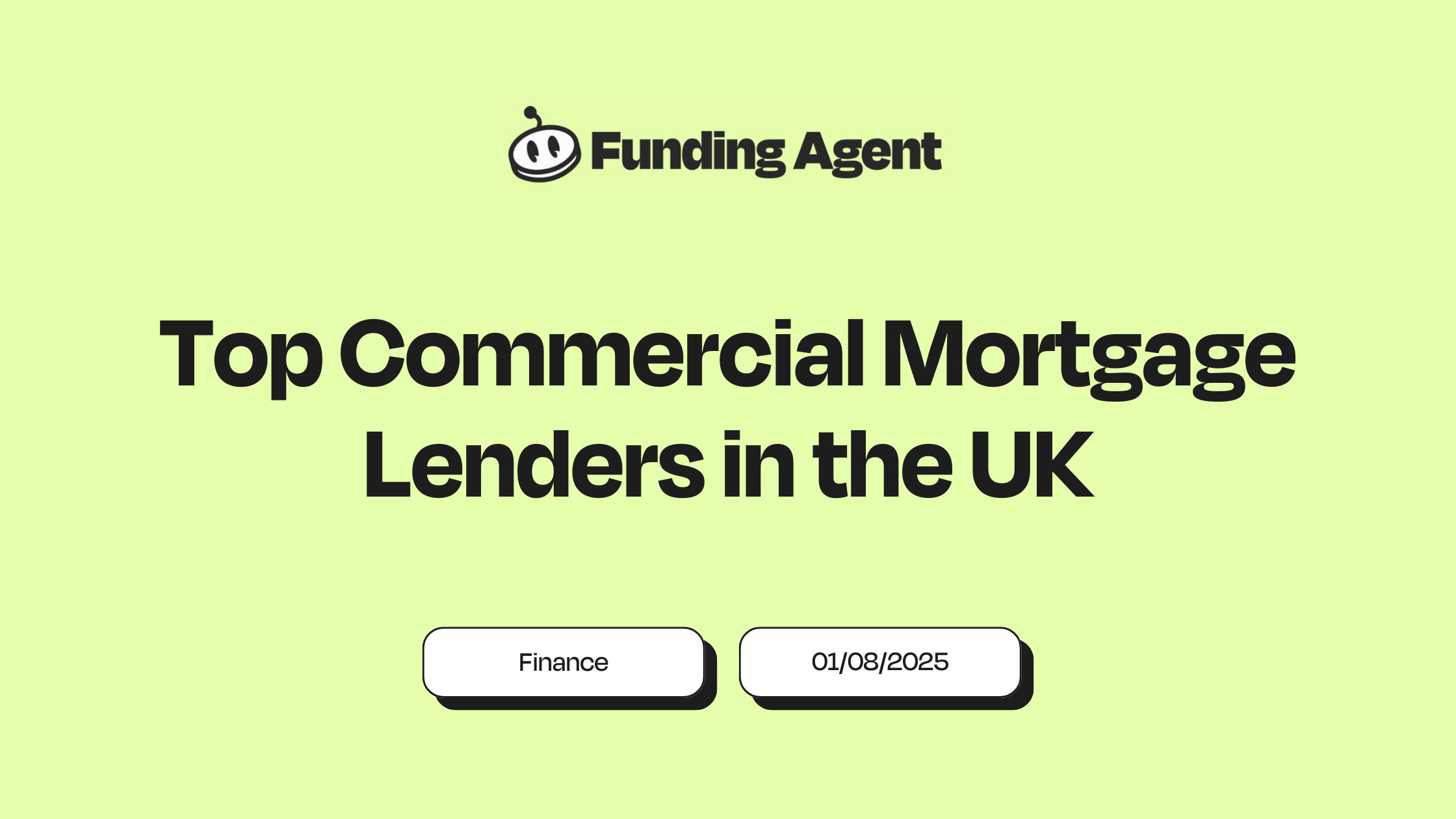
Finding the right commercial mortgage lender can make a significant difference to your business’s ability to purchase, refinance, or invest in property. The UK market is made up of high-street banks, challenger banks, and specialist lenders, each with unique products, rates, and eligibility criteria. Below we’ve listed some of the leading commercial mortgage lenders currently active in the UK, with links to their official websites.
Lenders Covered in This Guide
- Lloyds Bank
- Barclays
- HSBC UK
- NatWest / RBS
- Santander UK
- Shawbrook Bank
- Aldermore
- Paragon Bank
- Metro Bank
- Atom Bank
- Close Brothers
Commercial-property borrowing rebounded strongly in 2024, with new lending hitting £65 billion according to UK Finance’s Business Finance Review 2024 Q4. Yet net lending remains negative as firms pay down legacy pandemic debt, so lenders are competing harder than ever for quality transactions. Knowing which provider offers the right blend of loan-to-value, speed and sector appetite can save thousands in fees and interest.
Market snapshot
A twin-track market has emerged:
- High-street banks: Lloyds, Barclays, HSBC, NatWest and Santander, still write most low-risk, owner-occupied deals at margins around +2.5% over Bank Rate (see the latest NatWest commercial-mortgage guide).
- Challenger & specialist banks: Shawbrook, Aldermore, Paragon, Close Brothers, Metro Bank and Atom Bank, now account for roughly a third of new SME facilities, a trend highlighted in the British Business Bank’s Small Business Finance Markets Report 2025.
Share of new commercial-mortgage lending (2020-2025)
The lenders listed here sit outside the traditional high-street “big five,” yet they now write roughly one in three new commercial-mortgage deals for UK SMEs.
Why this matters: The chart makes it clear that high-street banks have seen their share of new commercial-mortgage lending slip from about 80 percent in 2020 to 67 percent in 2025, while challenger and specialist lenders surge from 20 percent to 33 percent. In practice, that means SMEs today are far more likely to secure funding from a Shawbrook, Paragon or Aldermore than they were five years ago. Greater lender diversity brings faster credit decisions, more interest-only options and bespoke covenants for semi-commercial or short-lease assets—choices that were scarce when the big five banks dominated.
High-street lenders still offer the lowest rates for prime, owner-occupied premises, but this shift underscores why modern borrowers should compare both camps. Funding Agent’s commercial-mortgage comparison tool lets you weigh challenger quotes against traditional bank offers before you commit.
High-street leaders and what they do best
Lloyds Bank
Lloyds offers commercial mortgages to companies looking to buy or remortgage commercial or owner-occupied premises, with terms of up to 25 years and lending up to 70% Loan-to-Value (LTV). Borrowers can choose between fixed or variable interest rate options. They require a first legal charge over the secured property, meaning the property must serve as acceptable collateral. Lloyds also supports property purchasers who are companies that buy, sell or let property.
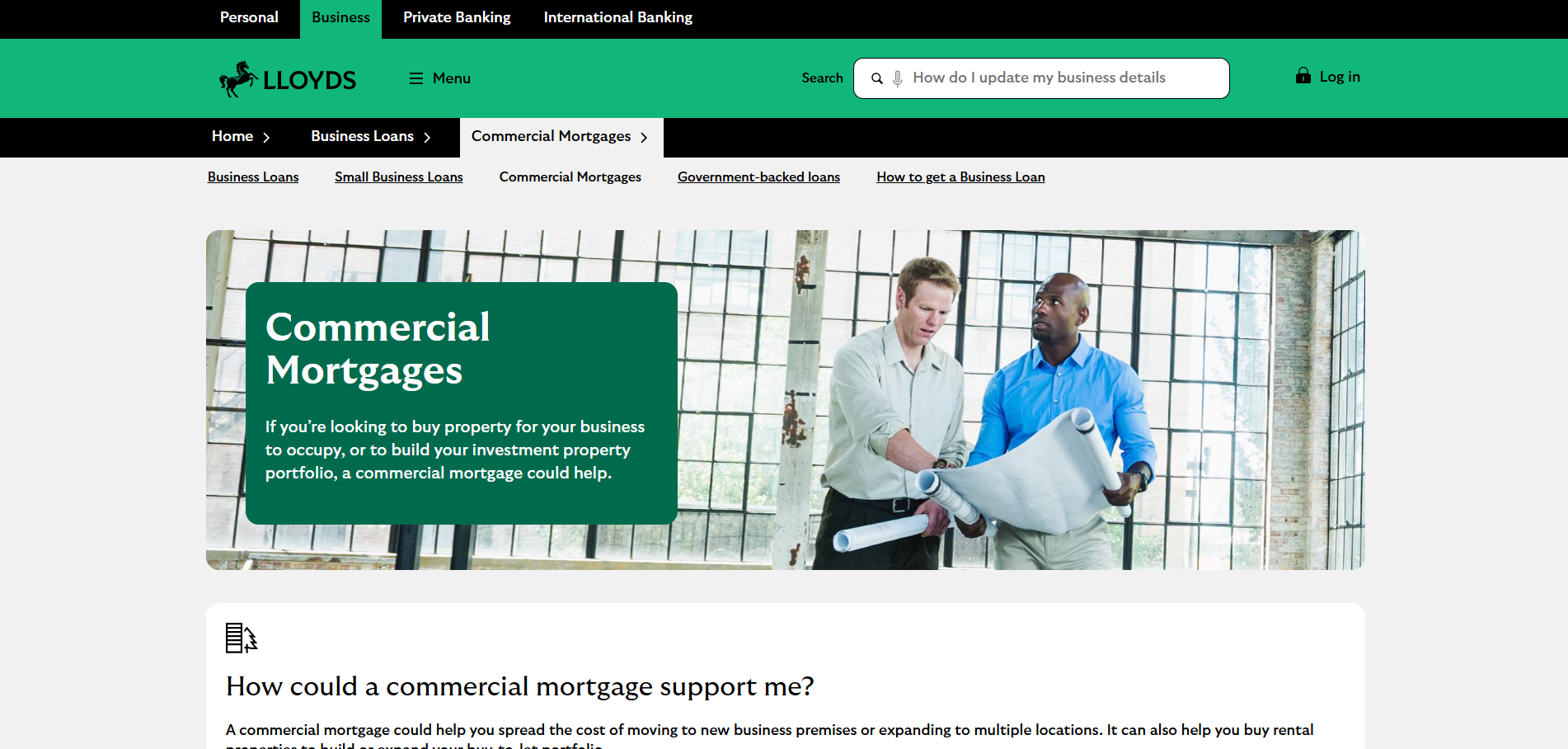
Barclays
Barclays provides commercial mortgages from £25,000+, secured by a first legal charge over the property offered as security. Its commercial mortgage products include fixed and variable rate options. For business mortgages, Barclays requires borrowers to meet eligibility criteria which depend on business strength, property type, loan size, and credit risk.
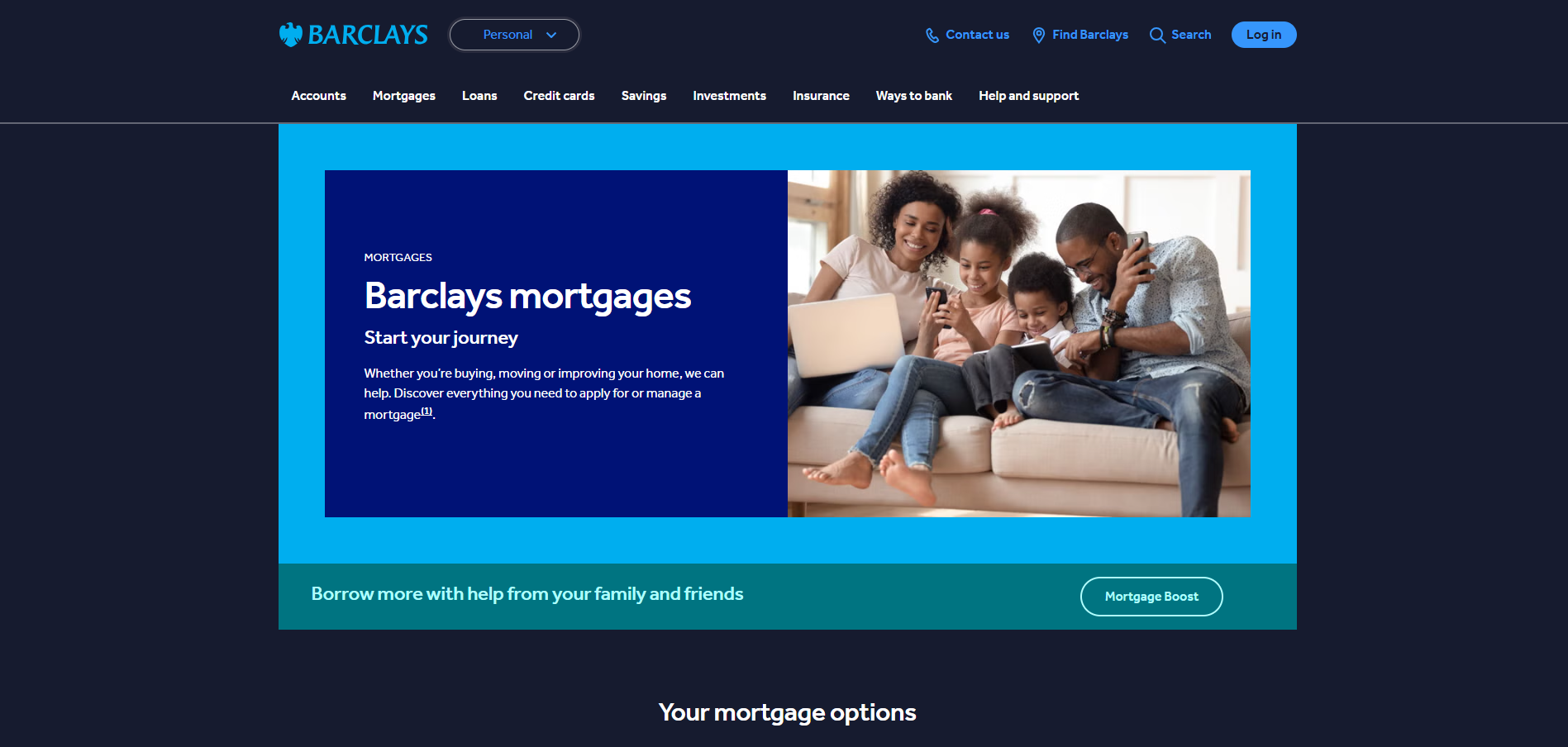
HSBC UK
HSBC’s commercial mortgage solutions cover purchasing or refinancing business premises. They also offer property construction or development loans, and loans for investment property (property not occupied by the business). Their offerings are designed for new or existing business premises, with suitability assessed according to the intended use of the property and business needs.
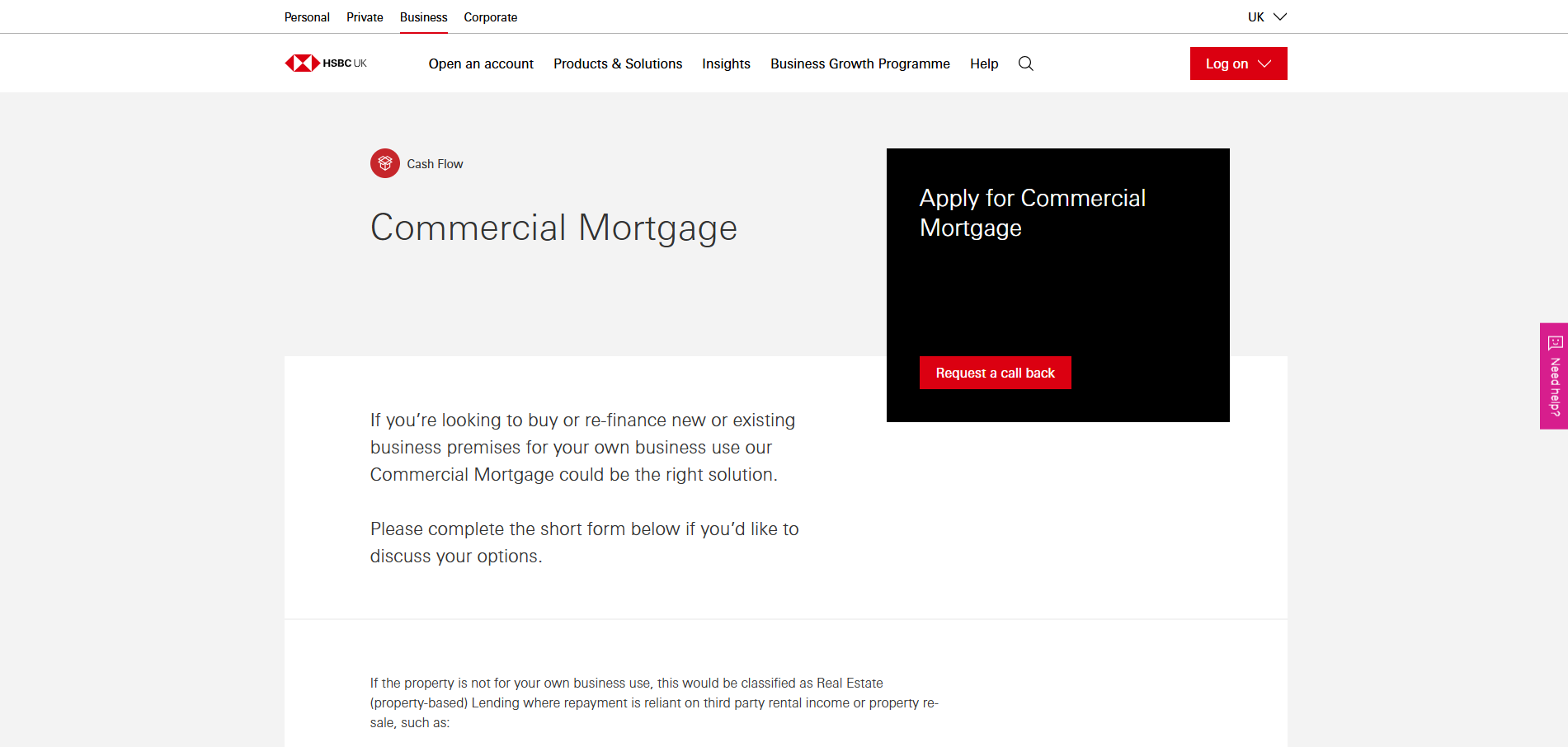
NatWest / RBS
NatWest’s commercial mortgage product allows borrowing from £25,001 to £10 million on a fixed rate; variable rate mortgages may have no upper limit subject to approval. NatWest highlights that it doesn’t apply early repayment fees in many cases (“no early repayment fees”, subject to terms). They offer tools to model repayment costs via their calculators. Flexibility in rate type comes with their product offerings.
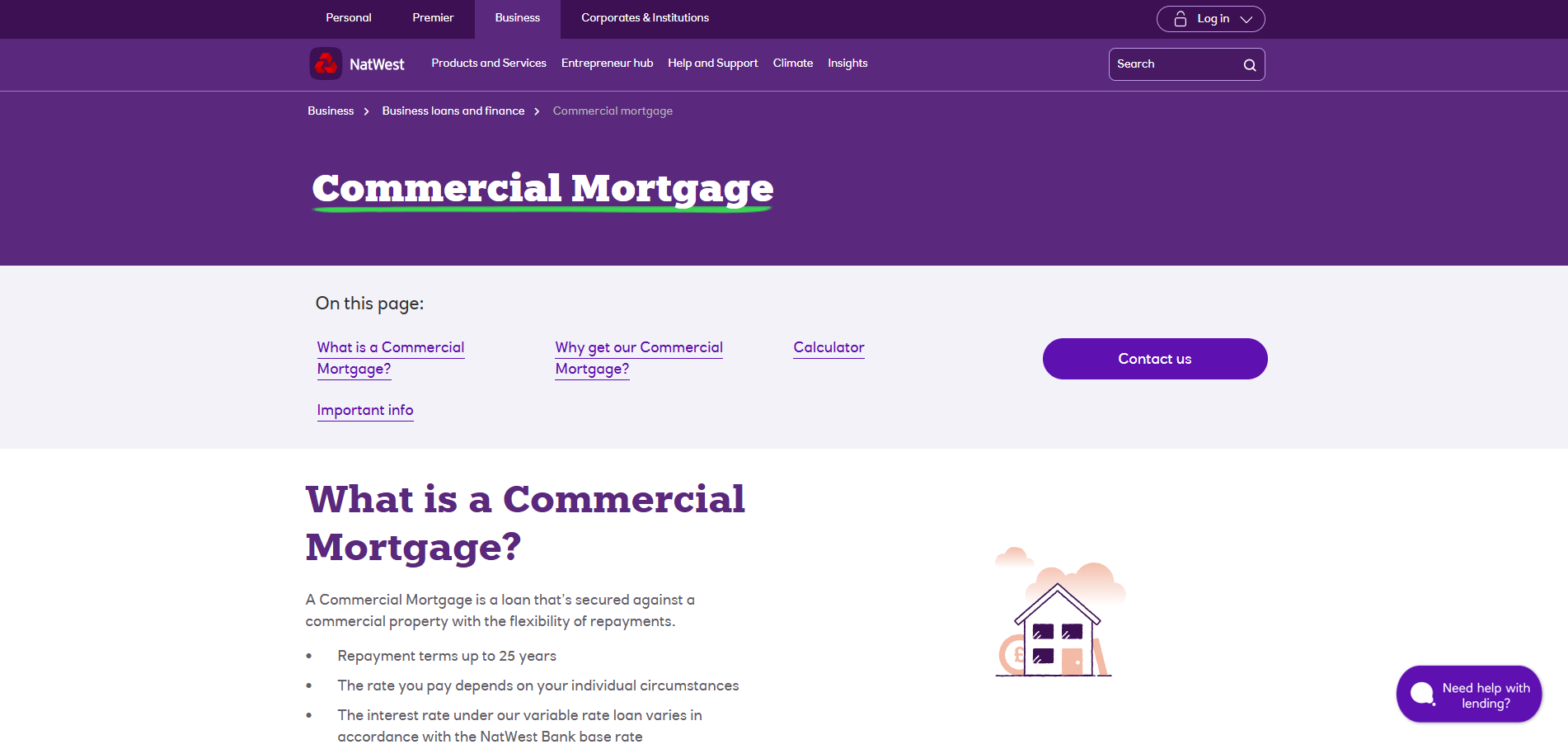
Santander
Santander’s commercial mortgages are available from £25,001 for businesses meeting certain turnover thresholds (for example, over £250,000). Their product range is flexible, with fixed and variable rate options, interest-only options in some cases, and repayment terms that can be customised. Santander does not offer its commercial mortgage product for real estate investment purposes in some instances. Their commercial property lending includes purchase, refinance of owner-occupied premises, and refinancing existing debt.
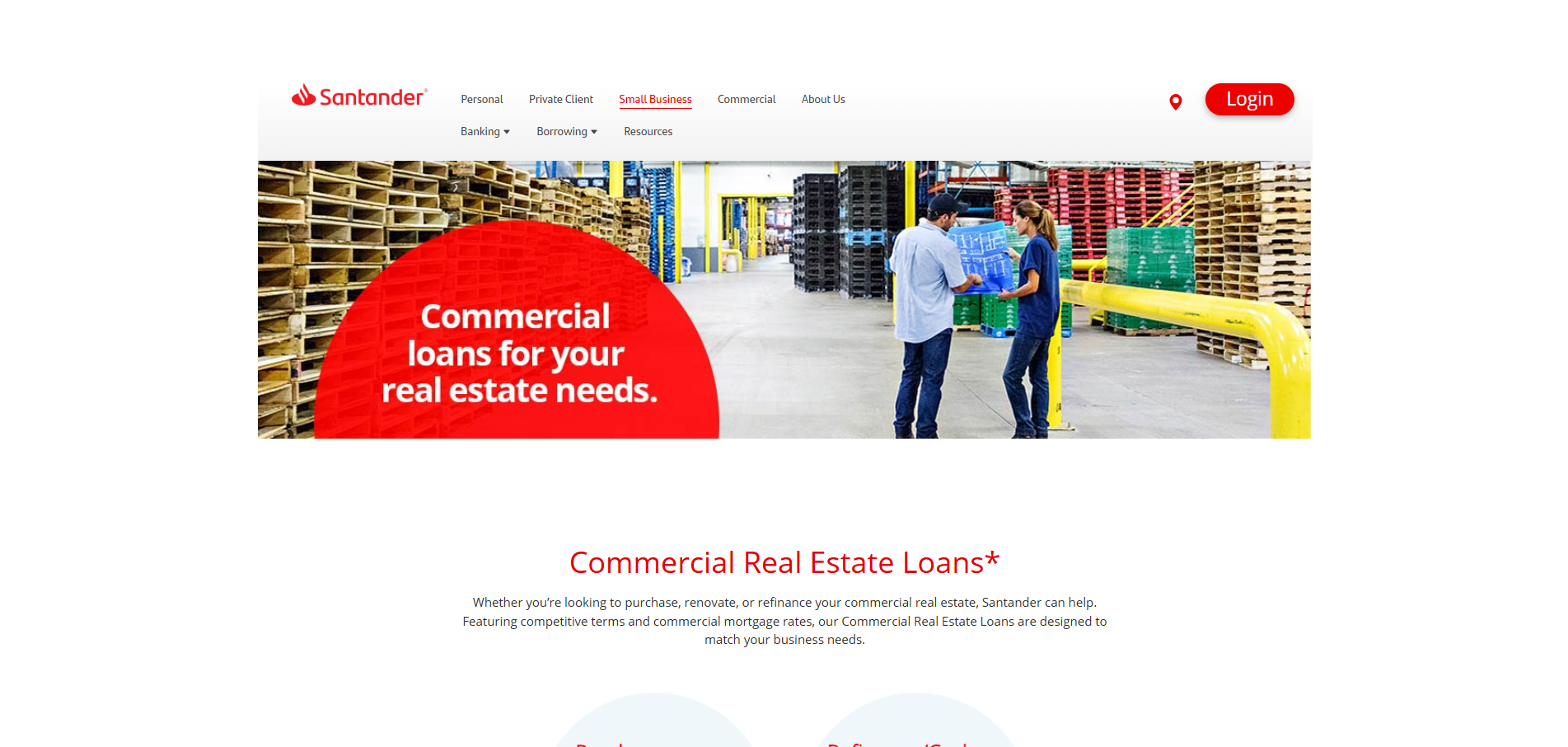
Challenger & specialist stand-outs
Why specialists win on speed
Moneyfacts broker tables indicate challenger completion times average six weeks versus ten weeks for high-street banks, thanks to in-house valuation panels and delegated legals, an efficiency confirmed in Clifton Private Finance’s 2025 rate commentary.
Cost components beyond the headline rate
Pricing equals margin + base rate + fees. Arrangement charges run 1–2%, valuations £900–£3,000, and early-repayment penalties up to 3% in year 1. Clifton’s analysis shows fee differentials of more than £20,000 on a £1 m loan when borrowers ignore ancillary costs.
How the costs stack up: On a £1 million commercial mortgage with a 75% margin over Bank Rate, most businesses will pay around 3.5% in interest margin annually. Added to that are lender fees, typically a 1.5% arrangement fee, about 0.2% in valuation charges and roughly 0.1% in legal expenses, bringing the total annual borrowing cost to ~5.3%. Since some of those fees are upfront but added to your loan, the effective interest can be higher over the term. The chart above visualises this breakdown to help SMEs compare true cost, not just headline rate, with standard arrangements.
Green-mortgage incentives
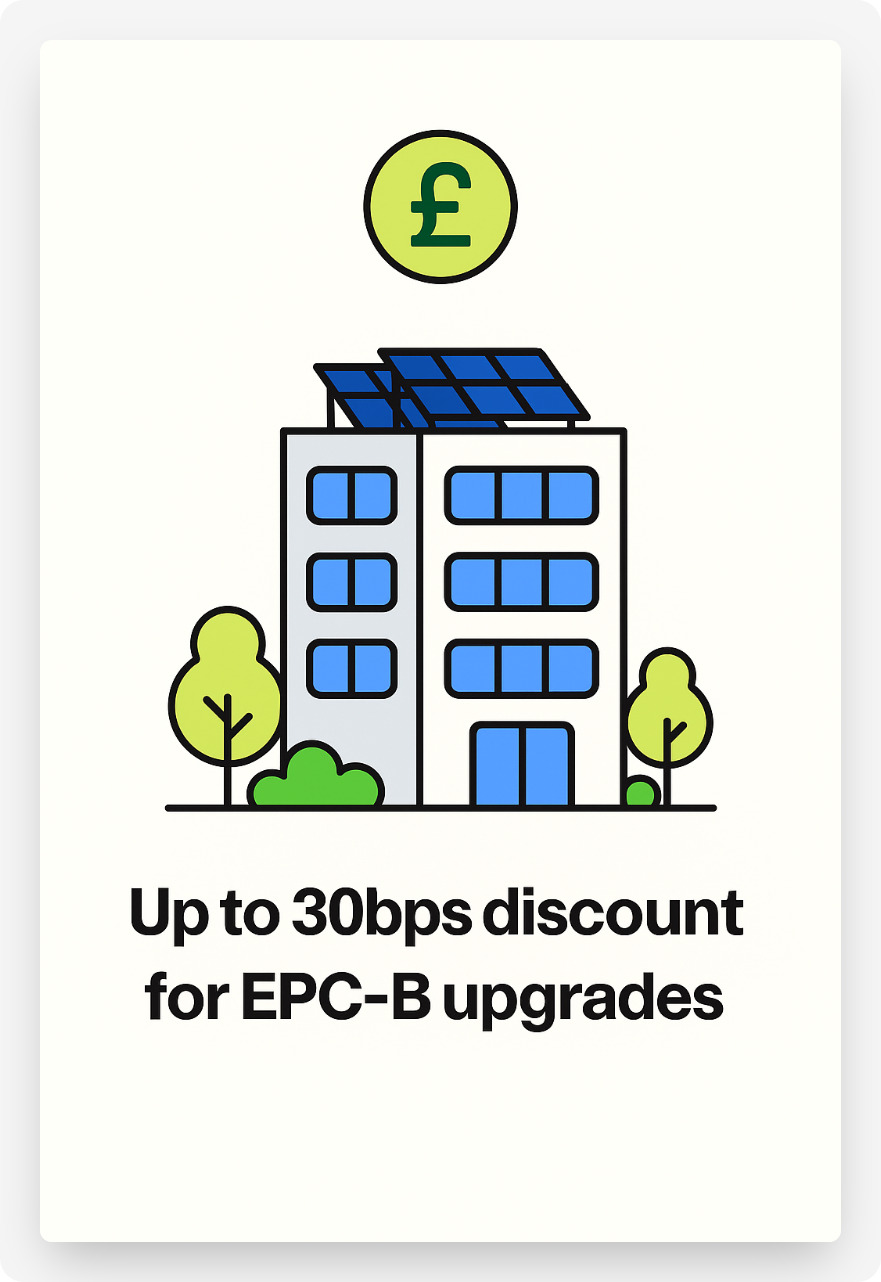
Banks like NatWest, Barclays and HSBC shave 10–30 bps off margins for properties upgraded to EPC-B. NatWest alone has deployed £110 billion in climate and sustainable finance, with a new £200 billion target by 2030 (Reuters climate-finance report).
How to Find the Right Lender
Here are three actionable tips to help you pick the best commercial mortgage lender for your circumstances.
Work with a Commercial Mortgage Broker
Brokers like Funding Agent or Watts Commercial Finance can open up options beyond what you might see direct from lenders. They often have access to lenders that don’t accept direct applications. A broker can help you compare interest rates, fees, loan-to-value (LTV), and flexibility across lenders, so you can select one that matches your priorities.
Assess Your Needs
Think through your business’s trading history, how much you need to borrow, and the type of property you want to finance. If your business has strong financials, long history, and you are buying a straightforward property, mainstream bank lenders may offer competitive terms. If your project is more complex or your credit/risk profile is not standard, specialist lenders might serve you better.
Ensure a Deposit
Many commercial lenders will require you to contribute your own capital. Be ready with a significant deposit, proof of funds, and ensure other purchase costs (legal fees, surveys, taxes) are budgeted for. The more deposit (or lower LTV), the more likely you’ll get favourable rates or better terms.
Tips / Checklist Before Applying
- Prepare full-financial documents: accounts, forecasts, bank statements.
- Get property valuations and check property type (some lenders restrict certain uses).
- Understand all the fees (arrangement / valuation / legal / exit etc.).
- Confirm flexibility: whether interest-only is permitted; how renegotiations work; whether lender accepts complex property structures.
- Factor time: large-loan or high-LTV approvals typically take longer.
Key takeaways
- High-street banks remain cheapest for low-risk owner-occupied assets.
- Challenger banks excel in speed, flexible underwriting and semi-commercial stock.
- Green discounts can shave margin if you retrofit to EPC-B.
- Compare total cost of debt, not just rate, Funding Agent’s tools can help.
Choosing the right commercial mortgage lender depends heavily on your business’s financial strength, property type, deposit availability, and how much you prioritise speed, certainty, and flexibility. Fill in the Funding Agent form to apply now.
.png)


